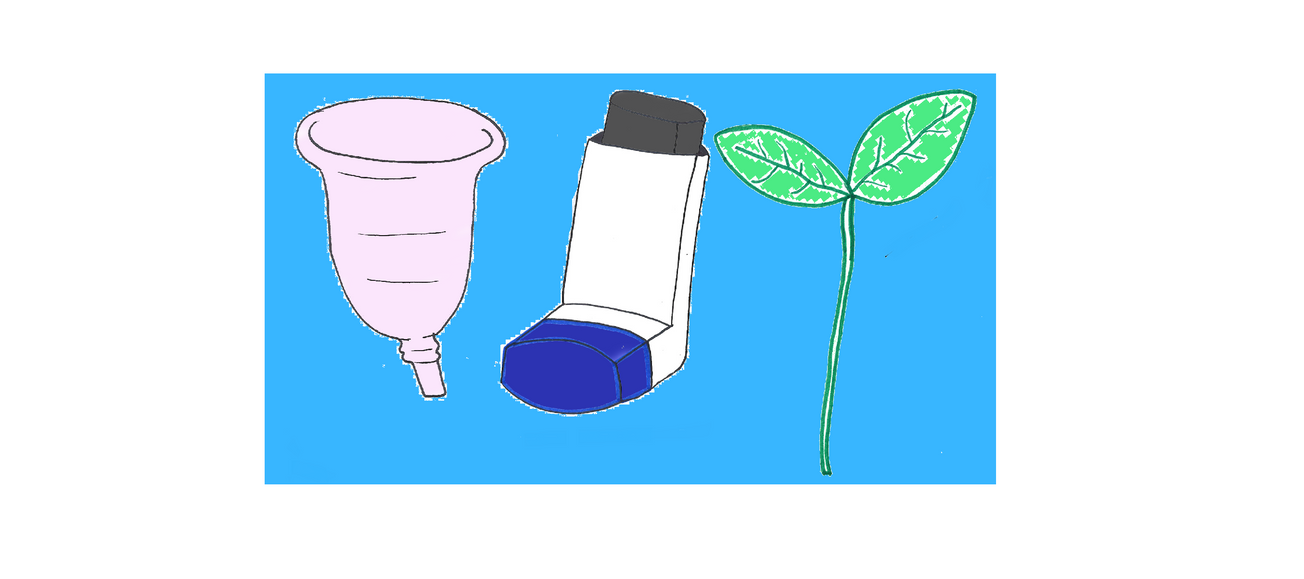By Genevieve Clapp, Second year, Medicine
A medical student’s perspective on how rewarding allowing students to explore sustainability can be.
The air is heavy with dust, crops are scorched by lightning and hospitals overflow with infectious diseases…no, this is not the beginning a post-apocalyptic YA novel. I am describing the mental image conjured during a particularly depressing ‘Planetary Medicine’ lecture in my first year, which dealt with global health. Nevertheless, making practices greener should be a major priority for future doctors and healthcare professionals.
The World Health Organisation has predicted worldwide increases in malnutrition, diarrhoea and infectious disease-related deaths due to climate change. Global warming is “the biggest threat to global health in the 21st century” according to The Lancet. To make matters worse, when it comes to emissions the NHS is far from squeaky clean – more of a crater than a footprint, the NHS contributes 3 percent of the UK’s total carbon emissions.
| Could yoga, tai chi and mindfulness reduce the risk of inflammatory disease?
To address the problem, the Bristol Medical School has begun to incorporate sustainability into its teaching. Every year we are asked to conduct a project, and this year we were the second cohort to be given the option of sustainable healthcare as a topic. Seven students embarked on four projects, working with GPs to make their surgeries greener as well as more financially and socially sustainable.
Ever the reliable villain, pharmaceuticals were the target of mine and my partner’s project. 63 percent of the NHS’s carbon emissions are produced during the procurement of medications and equipment, due to the energy-intensive production process and large volumes of packaging. We tried to reduce the demand for drugs through de-prescribing, which involves encouraging patients to stop taking medications that are no longer benefitting them and convincing them to try a non-pharmacological alternative, such as group therapy or walking groups.
As you can imagine, this had its challenges. We began by looking at Tramadol, which is a commonly prescribed opioid painkiller notable for its litany of side effects – vomiting, palpitations and confusion – and an addictive nature. It was actually very difficult to de-prescribe, as people generally just wanted another medication rather than a non-pharmacological alterative. We did however manage to get three patients to start reducing their Tramadol dose. Perhaps the most important outcome of our project was improving patients’ quality of life by reducing undesirable side-effects.
Another product costly to both the environment and parents is formula milk, which inspired another pair to begin a project promoting breastfeeding. Choosing to breastfeed not only prevents a weekly £100 dent in your wallet and helps to preserve the environment, but it also protects babies by reducing their risk of infections. During the first weeks of breastfeeding, antibodies are passed from mother to child. These are vital for helping breastfeeding babies to battle illnesses.
However, the pair quickly found that this is a sensitive topic as not every mother is able to breastfeed, be it due to medical conditions or having to return to work soon after giving birth. Instead, they focused on making mothers who wanted to breastfeed feel as comfortable as possible breastfeeding in the surgery.
Others chose to look at contraception and menstrual products. A staggering 1.5 to 2 billion sanitary items are flushed down UK toilets every year, alongside 61 to 100 million condoms. Unlike the aforementioned projects, there is no controversy involved. Everyone can get involved in prevention by ensuring that there are bins available for disposing of products and reminding people to use them.
The students running this project put up posters in the surgery toilets to encourage use of the sanitary bins. They also had a stall on ‘having a greener period’, which showcased alternatives to using tampons and pads such as menstrual cups and the contraceptive pill, though the pill is admittedly not suitable for everyone.
Keeping on the topic of plastic waste, the final project worked on the sustainability of inhalers. There are two main types of inhaler; dry powder inhalers (DPIs) are better for the environment than metered dose inhalers, because they do not contain an aerosol propellant. Those running this project worked with staff to ensure they were considering the DPI whenever they could and advertised the use of recycling bins for the plastic part.
Together, we felt like our projects made a real difference, particularly on how we approached sustainability in our everyday lives. Yasmin Aboud, who helped run the inhaler project, said that before the project she was not passionate about the environment, stating that she “always thought that…[her] actions weren’t big enough”.
After just three weeks, she has changed her tune; “it has changed my life” she told Epigram, “and making a difference seems achievable”. This is why sustainability teaching is so important – it empowers students to fight for change and makes the current climate crisis seem less hopeless.
Featured image: Epigram / Vilhelmiina Haavisto
What do you do to fight climate change? Let us know!






